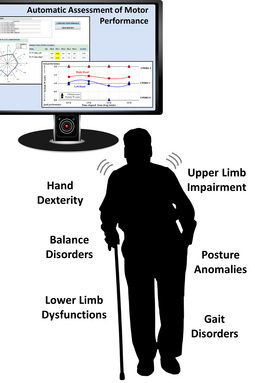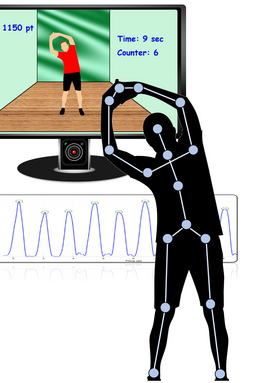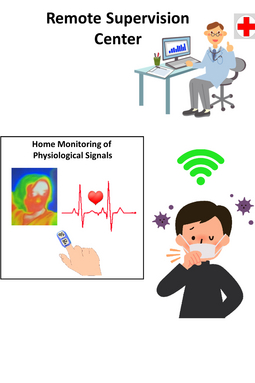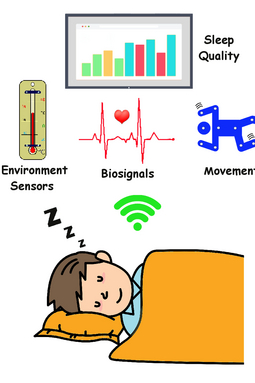Non-invasive ICT Technologies
Technological solutions for the analysis, characterization, monitoring and automated evaluation of kinesiological and physiological aspects related to health, rehabilitation, training and sport, with particular specific expertise on health and well-being, pathological conditions, elderly population and active aging

Non-invasive technologies for the automated assessment of neurological diseases
The research activity concerns the study of the impact of ICT technologies on the assessment and management of neurological diseases, specifically Stoke and Parkinson's Disease. The main goal is the development of self-managed, low cost and non-invasive systems based on optical and wireless devices (RGB-Depth cameras and IMUs) for the automated and objective assessment of the disease severity. To this purpose, the correlations existing between kinematic features of the motor performance and the corresponding clinical evaluations is explored by tracking and characterizing the subject movements during specific motor tasks of standard clinical assessment scales, such as the Unified Parkinson's Disease Rating Scale, the Berg Balance scale, and the Mesupes scale. The automated assessment is performed by machine learning techniques based on supervised classifiers trained by clinical data. The development of non-invasive, low- cost, gesture based Human Computer Interfaces (HCI) suited to motor impaired subjects allows for the self-management of the system, making it usable at home.
Exergames for the rehabilitation of neurological diseases
Rehabilitation is approached by the aforementioned scientific expertise applied in the context of virtual and augmented reality environments. In particular, rehabilitation is supported by the development of exergames, a specific type of videogames that stimulates physical and cognitive activity with the aim of training, improving, or partially recovering the impairment of motor and cognitive functions. The main objective is to automate the assessment of the effectiveness of the rehabilitation exercises administered in the form of exergames. During the exergame the subjects interact, through their body, with an engaging and challenging virtual or augmented environment rich of visual, acoustic and rhythmic stimuli. Low-cost and non-invasive approaches, combined with an easy-to-use human-computer interaction, make the implemented solutions practicable at home.
In the specific context of neurological diseases, particular attention is paid to the development of exergames dedicated to the rehabilitation of post-stroke and Parkinson's disease (e.g. motor control and coordination strategies, balance and postural stability), including the analysis of dual task conditions (combination of simultaneous motor and cognitive tasks) and the benefits offered by tango-therapy.


At home monitoring of flu-like syndromes
The current COVID-19 pandemic situation requires home isolation of suspected people affected by the virus and, in order not to clog the national health service facilities, the possible hospitalization only for patients with severe respiratory difficulties destined for intensive care. Monitoring solution at home could have both a significant social and psychological impact on the citizen-patients, and an important economic impact on the health facilities.
The goal of this research activity is to provide an automatic home monitoring and alarm system, cost effective and quickly activated, based on a series of non-invasive sensors for the measurement of physical, physiological and motor features useful for monitoring the symptoms of COVID-19. The system is trained using machine learning techniques and incrementally improves its knowledge by new data.
Sleep disorder monitoring
This research activity aims at developing systems and methodologies for the analysis and the monitoring of sleep quality in healthy and sick people. In subjects affected by neurological diseases like Stroke and Parkinson’s, specific sleep and circadian rhythm disturbances are symptoms of the disease and their monitoring allows for a correct adoption of the therapies. In this context, the current research activity aims at the study of sleep monitoring solutions suitable to be used in the clinic and at the patient's home. The developed systems work alongside traditional polysomnography with the aim of minimizing costs and improving ease of use. The systems developed are modular and "scalable in complexity", low invasive and integrate both commercial sensors and ad hoc devices. The automated monitoring capabilities of these systems are based on the acquisition of various physiological parameters (EEG, ECG, EOG, EMG, respiratory flow, movement) and on the development of machine learning algorithms for the purpose of automatic assessment of sleep quality and automatic sleep staging.
